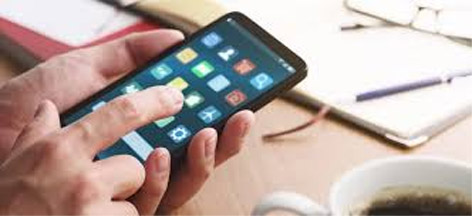NEW DELHI, May 28:A study conducted by The George Institute for Global Health India (TGI) has said that there is an urgent need to create integrated teleconsultation options within COVID-19 digital apps to assure quality healthcare services.
A review of the mobile applications for COVID-19 response conducted by TGI has recommended that with the number of cases growing in the country, there is an urgent need to create integrated teleconsultation options within these apps to assure quality healthcare services, including those with pre-existing conditions.
The paper published in the latest issue of the ICMR’s Indian Journal of Medical Research highlights the need for coupling apps to health systems responses in order to maximise the impact of the app-based approaches.
The study found that most of the apps focussed on self-testing, quarantine monitoring and contact tracing.
”India’s response to COVID-19 can be strengthened by developing comprehensive mHealth solutions that address the needs of frontline healthcare workers, rapid response teams and public health authorities,” said Prof Vivekanand Jha, Executive Director, George Institute for Global Health India.
A number of bodies, including the Government of India, State governments and healthcare organisations have developed mobile apps for the containment of the disease. This study was aimed to systematically review COVID-19 related mobile apps and highlight gaps to inform the development of future mHealth initiatives. )
A search of Google Play and the Apple app stores yielded 346 potential COVID-19 apps, of which 50 met the predefined study inclusion criteria. A list of COVID-19-specific functions was compiled based on the review of the selected apps, the literature on epidemic surveillance, and national and international media reports.
The World Health Organisation guideline on Digital Health Interventions was used to classify the app functions under the categories of the general public, health workers, health system managers, and data services.
The review found that 27 (54 per cent) apps focussed on dissemination of untargeted COVID-19-related information on preventative strategies and 19 (32 per cent) on monitoring the movements of quarantined individuals. Eight (16 per cent) had a contact tracing and hotspot identification function.
On-demand information services through chatbots or telephonic helplines were available in 19 (38 per cent) apps whereas 15 (30 per cent) provided users with a self-risk assessment function based on a set of screening questions related to their symptoms, occupations, travel history, and contact history.
Information on the availability of Covid-19 testing facilities was available in six (12 per cent) apps and only four (8 per cent) apps had a provision for booking teleconsultation or testing appointments. UNI NY SB 1448


